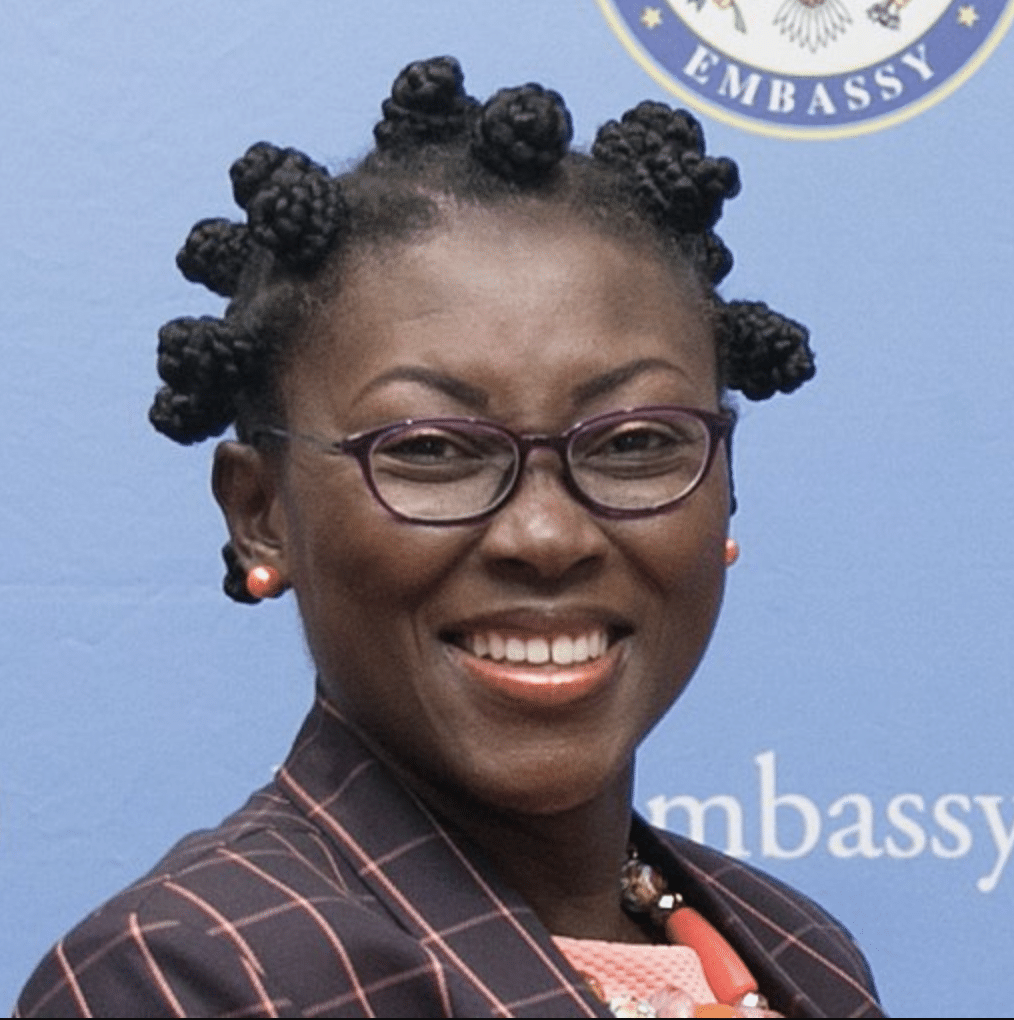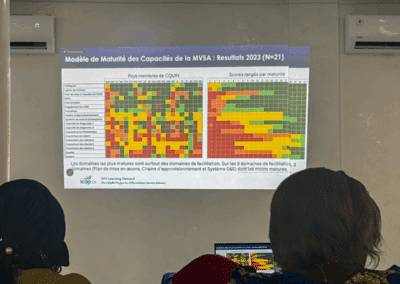Nyonuku Akosua Baddoo, MD, is a program officer and head of clinical care for the National AIDS/STI Control Program (NACP) of Ghana’s Ministry of Health. In September 2020, Dr. Baddoo attended the CQUIN onboarding and orientation workshop for the five new countries that joined the network in July.
For Dr. Baddoo, this meeting was an opportunity for the Ghana team to learn more about the CQUIN approach to differentiated service delivery to aid national DSD scale-up in the West African country.
What is the state of DSD in Ghana?
NAB: After a 2017 WHO-initiated assessment of HIV care in Ghana, where the NACP developed its DSD operational manual for HIV, we realized Ghana has already implemented some DSD models but hadn’t documented and captured these models as DSD. For instance, some facilities would give people doing well on antiretroviral therapy (ART) up to six months of ART, but in some cases, the facilities would lose track of these patients due to ineffective monitoring and evaluation systems. In communities with viable community health care services, we had community distribution of ART, and home-based care, among other examples.
Our current DSD focus in Ghana is on training facilities that provide ART services such as differentiated testing, linkage, differentiated ART delivery, retention in care, and viral load monitoring to strengthen service delivery through the whole cascade of HIV care. What we are not doing is the community-based groups because of stigma.
Ghana is one of the new countries to join CQUIN. What is the country hoping to learn from the network?
NAB: Number one on the agenda is strengthening the implementation of DSD in the facilities. We also want to learn more about providing quality assessments of HIV services and enhancing the monitoring and evaluation of our facilities providing DSD services. Currently, EQUIP Ghana is supporting us to implement DSD in the facilities through enhanced onsite support, but that is something we at the national level can’t do alone. Recent events with COVID have shown us the possibilities of using technology to engage some of the facilities. We hope we can strengthen these services and learn other innovations from member countries through CQUIN.
What were your impressions of the onboarding workshop?
NAB: We are excited about the CQUIN concept of south-to-south learning and country networking. How do national AIDS control programs manage facilities to provide quality service while showing evidence of these services through data? We look forward to learning from other countries who are implementing DSD in similar settings, especially from people managing national aids policy.






